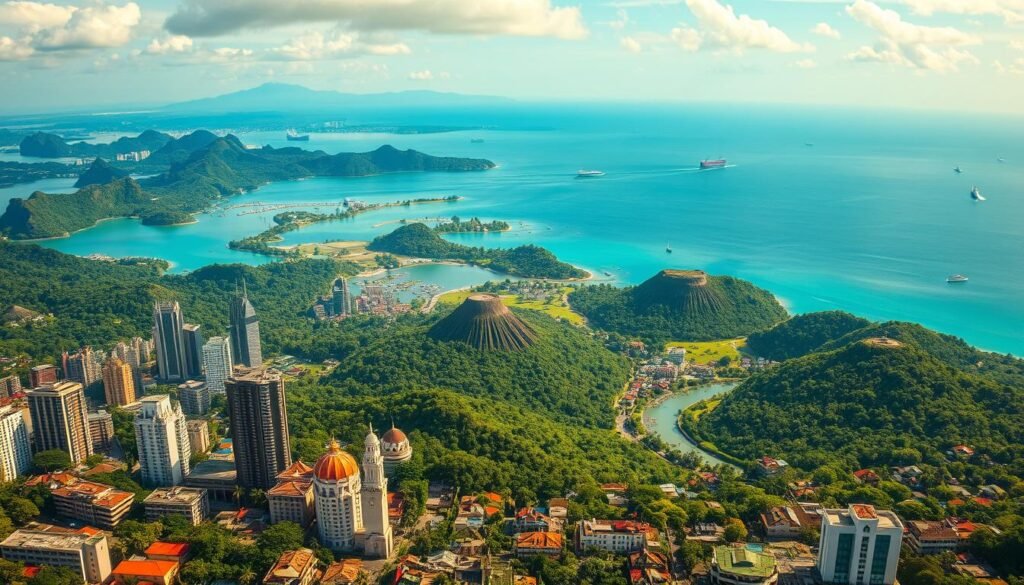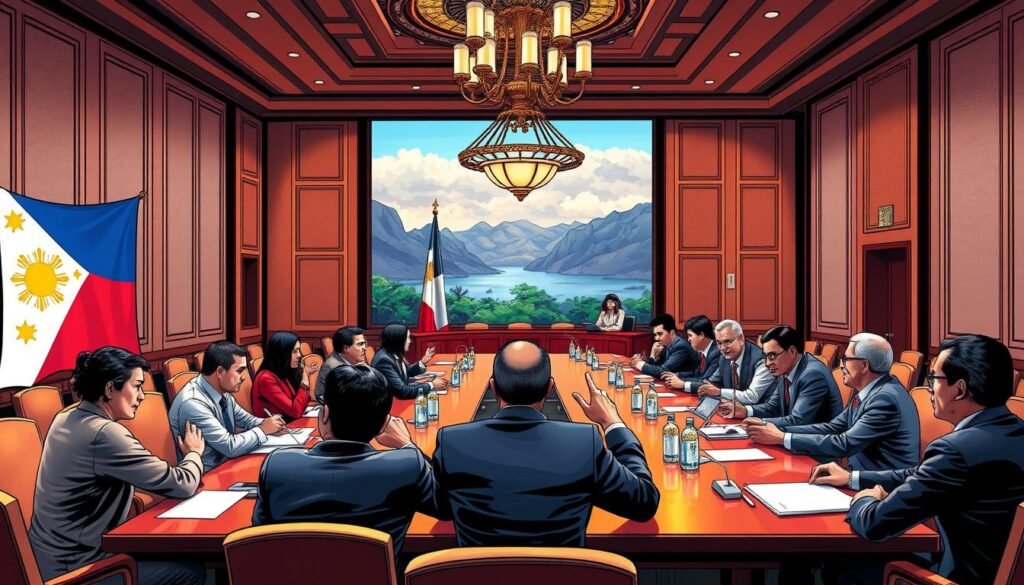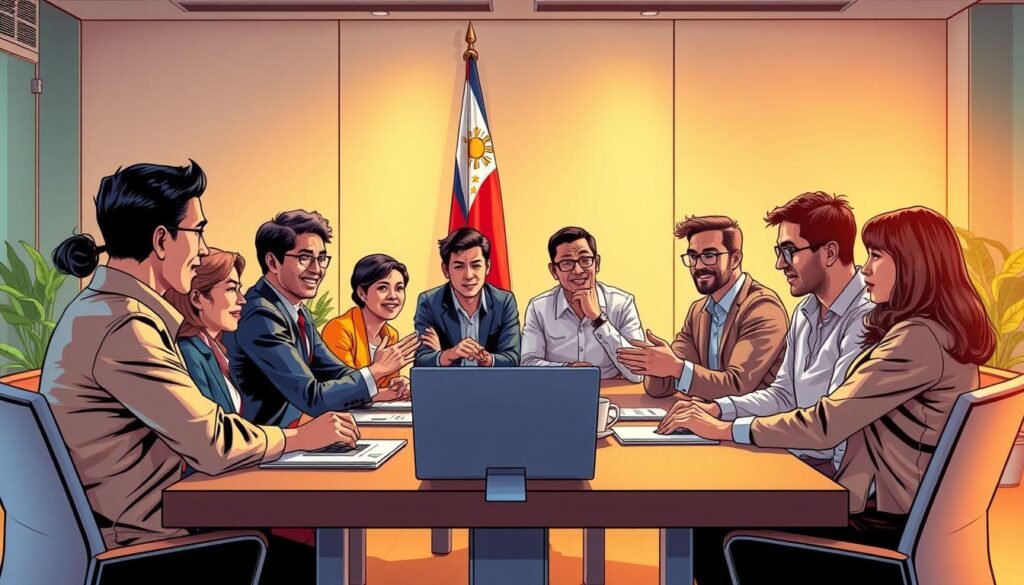The Philippines plays a pivotal role in shaping regional dynamics and global affairs. Its strategic location in Southeast Asia makes it a key player in fostering economic, cultural, and political ties. Understanding the responsibility of this position is essential for effective leadership and diplomacy.
In sociology, a role refers to expected behaviors and obligations tied to a specific position. This concept applies to nations as well. The Philippines, as a team member in international organizations like ASEAN and the UN, demonstrates how individual roles contribute to collective success.
The country’s growing influence in policy-making and economic development highlights its importance on the global stage. By embracing its role responsibility, the Philippines strengthens its partnerships and enhances its reputation as a reliable ally.
Key Takeaways
- The Philippines is a strategic player in regional and global affairs.
- Roles are defined by expected behaviors and obligations.
- Understanding roles is crucial for effective leadership and diplomacy.
- The country’s influence spans culture, economy, and policy-making.
- Collaboration in international organizations enhances collective success.
Introduction to the Philippines’ Strategic Position
Strategically located in Southeast Asia, the Philippines has long been a cornerstone of regional and global affairs. Its geographical position makes it a vital hub for trade, diplomacy, and cultural exchange. This strategic advantage has allowed the country to play a significant responsibility in shaping international dynamics.

Overview of the Country’s Global Impact
The Philippines’ influence extends beyond its borders, impacting global policy and economic trends. As a team player in organizations like ASEAN and the UN, the country has consistently demonstrated its commitment to collective success. Its active participation in international dialogues highlights its growing importance on the world stage.
Historically, the Philippines has been a model for resilience and adaptability. From gaining independence in 1946 to navigating modern challenges, the country has shown a remarkable ability to evolve. This adaptability is crucial in addressing emerging issues such as climate change and regional security.
Historical Context and Emerging Challenges
The Philippines’ journey to independence and its subsequent development have shaped its current responsibility in global affairs. Key milestones, such as the 1986 People Power Revolution, have reinforced its commitment to democracy and human rights. These events have set the foundation for its modern diplomatic job.
However, the country faces significant challenges. Military modernization efforts have lagged behind regional powers, impacting its ability to address security threats. Additionally, economic disparities and political instability continue to test its resilience. Understanding these challenges is essential for maintaining its role responsibility in international forums.
| Historical Milestone | Impact |
|---|---|
| Independence (1946) | Established the Philippines as a sovereign nation. |
| People Power Revolution (1986) | Reinforced democratic values and human rights. |
| Modern Military Challenges | Highlighted the need for defense modernization. |
Cultural and political shifts have also influenced the Philippines’ diplomatic function. From fostering regional partnerships to addressing global issues, the country continues to adapt to changing expectations. This adaptability ensures its relevance in an ever-evolving international landscape.
Understanding the Role in Regional Dynamics
In the intricate web of Southeast Asian geopolitics, the Philippines holds a unique position. Its responsibility as a mediator and collaborator is shaped by both historical context and modern challenges. This role is crucial in fostering stability and economic growth across the region.

Sociological theories like Talcott Parsons’ functionalism and Belbin’s team-role theory provide insights into how the Philippines operates within regional groups. These frameworks emphasize the importance of clearly defined responsibilities and interdependence among team members. For example, the country’s active participation in ASEAN showcases its ability to balance individual and collective goals.
Defining Responsibilities in a Complex Region
The Philippines’ responsibility extends beyond its borders, influencing regional policies and partnerships. Its position as a resourceful leader is evident in its efforts to address shared challenges like climate change and security threats. By leveraging traditional values and modern research, the country navigates complex dynamics effectively.
Key aspects of the Philippines’ regional work include:
- Mediating disputes to maintain peace and stability.
- Promoting economic development through trade and investment.
- Collaborating with neighboring countries to address transnational issues.
This approach ensures that the Philippines remains a role model in Southeast Asia. Its ability to adapt to changing expectations while upholding its core values strengthens its influence and partnerships.
Navigating International Responsibilities and Opportunities
The Philippines has emerged as a key player in global diplomacy, leveraging its strategic position and cultural influence. Its responsibility in fostering international collaboration is evident in its active participation in organizations like ASEAN and the UN. This role is not just about representation but also about driving meaningful action on global issues.

Insights into Diplomatic Engagement
Diplomatic engagement requires a clear understanding of responsibilities and the ability to navigate complex dynamics. The Philippines has demonstrated this through initiatives like the Bangsamoro Peace Process, which addressed long-standing conflicts in Mindanao. Such efforts highlight the country’s ability to mediate and resolve disputes effectively.
Collaboration with neighboring countries has also been a cornerstone of its diplomatic work. For instance, the Philippines’ partnership with Japan on infrastructure development has strengthened economic ties and regional stability. These examples underscore the importance of role clarity and shared goals in international affairs.
Building and Sustaining Global Partnerships
Building global partnerships requires trust, mutual respect, and a commitment to collective success. The Philippines has excelled in this area by aligning its efforts with global frameworks like the UN Sustainable Development Goals. This alignment ensures that its initiatives address both local and international priorities.
Key factors in sustaining these partnerships include:
- Regular dialogue and transparency to address emerging challenges.
- Collaborative research to develop innovative solutions to global issues.
- Leadership that fosters trust and accountability among team members.
By focusing on these strategies, the Philippines has solidified its position as a trusted global partner. Its ability to adapt to changing expectations while upholding its core values ensures its continued relevance in international forums.
How-To Guide: Enhancing Team Collaboration in Geopolitical Arenas
Effective collaboration in geopolitical arenas requires clear strategies and defined responsibilities. Teams must navigate complex challenges while maintaining accountability and productivity. This guide provides practical steps to improve team dynamics and achieve measurable results.

Step-by-Step Role Clarification Techniques
Clarifying roles is the foundation of successful collaboration. Start by identifying each team member’s strengths and expertise. Use tools like role responsibility charts to outline expectations and tasks.
Next, hold regular meetings to discuss progress and address any gaps. This ensures everyone understands their responsibility and how it contributes to the team’s goals. Clear communication is key to avoiding misunderstandings.
Finally, encourage feedback and adaptability. Teams in geopolitical settings often face unexpected challenges. Being flexible allows members to adjust their actions and maintain productivity.
Implementing Best Practices for Accountability
Accountability ensures that every team member takes ownership of their tasks. Begin by setting measurable goals and timelines. This provides a clear framework for evaluating performance.
Use technology to track progress and share updates. Tools like project management software can streamline the process and keep everyone informed. Regular check-ins also help maintain focus and address issues early.
Reward achievements and address shortcomings constructively. Recognizing efforts boosts morale, while constructive feedback fosters growth. This balance strengthens trust and collaboration within the team.
For more insights on building an effective security team, explore strategies that emphasize leadership and continuous skill development.
Analyzing Societal Impact and Gender Roles in the Region
Cultural norms in Southeast Asia significantly shape societal expectations and gender roles. These norms influence how individuals perceive their responsibility within their communities and at home. Understanding these dynamics is crucial for fostering equality and addressing traditional conflicts.

In many societies, gender roles are deeply rooted in tradition. However, modern influences are challenging these norms. For example, women in the Philippines are increasingly taking on leadership roles, breaking away from traditional expectations. This shift highlights the evolving nature of societal responsibility.
Cultural Influences and Evolving Gender Role Expectations
Cultural factors play a significant role in defining gender expectations. In Southeast Asia, traditional values often emphasize distinct roles for men and women. Yet, globalization and education are reshaping these norms. Women are now more visible in politics, business, and other sectors, challenging the status quo.
Research shows that clear role definitions can reduce gender conflicts. When individuals understand their responsibility, they are better equipped to contribute to societal progress. This clarity also fosters collaboration within groups, enhancing collective success.
For instance, the Philippines has seen a rise in women leaders who advocate for gender equality. Their efforts demonstrate how evolving roles can drive national development. By embracing these changes, societies can create more inclusive environments.
Group dynamics also influence formal and informal responsibilities. In many communities, women manage household tasks while men focus on external work. However, these boundaries are blurring as more persons take on diverse roles. This shift reflects a broader societal transformation.
Studies highlight the need for revised role models in contemporary society. As traditional norms evolve, new frameworks are essential for guiding individuals. These frameworks should emphasize equality and shared responsibility, ensuring that everyone can thrive.
For more insights on societal norms and their impact, explore this research on gender equity and health.
Integrating Local Initiatives with International Action
Local initiatives in the Philippines are bridging the gap between grassroots efforts and global objectives. By aligning community projects with national and international goals, the country is fostering sustainable development and enhancing its global partnerships. This approach ensures that local actions contribute to broader societal progress.

One effective strategy is to integrate local resources with global programs. For example, community-based renewable energy projects align with international climate goals, such as reducing greenhouse gas emissions. These initiatives not only address local needs but also support global frameworks like the UN Climate Action Coalitions.
Strategies for Community and National Development
Aligning local initiatives with national development goals requires clear responsibility and collaboration. Communities must work together to identify shared objectives and leverage available resources. This process ensures that every person contributes to the collective success.
Key strategies include:
- Encouraging community participation in decision-making to foster ownership and accountability.
- Aligning local projects with national policies to ensure consistency and support.
- Building partnerships with international organizations to access funding and expertise.
For instance, the Philippines’ involvement in community engagement in climate action demonstrates how local solutions can address global challenges. By empowering residents and fostering collaboration, these initiatives enhance resilience and contribute to broader climate goals.
Addressing gender role challenges is another critical aspect of community development. Women in the Philippines are increasingly taking leadership roles in local projects, breaking traditional norms and driving progress. This shift highlights the importance of inclusive strategies that benefit everyone.
By defining clear roles within both local and international settings, the Philippines ensures accountability and maximizes impact. This approach not only strengthens community ties but also enhances the country’s global reputation as a reliable partner in sustainable development.
Conclusion
The Philippines’ ability to balance regional and global responsibilities showcases its growing influence. Its strategic position and active participation in international organizations highlight its commitment to fostering stability and progress. Clear responsibility definitions have been key to its success in diplomacy and community development.
Understanding these dynamics is essential for effective collaboration. When every team member knows their part, it strengthens collective efforts and drives societal progress. Implementing the strategies discussed can enhance clarity and accountability within groups, ensuring better outcomes.
By working together, the Philippines continues to build stronger leadership and a more resilient community. For further insights on building effective institutions, explore this resource on human rights and governance.
FAQ
What is the strategic position of the Philippines in regional and international affairs?
The Philippines holds a key position in Southeast Asia, serving as a bridge between the Pacific and Asian regions. Its geographic location and active participation in global organizations make it a significant player in regional security, trade, and diplomacy.
How does the Philippines contribute to regional dynamics?
The country plays a vital part in fostering cooperation through platforms like ASEAN. It addresses shared challenges such as maritime security, economic integration, and disaster response, ensuring stability and growth in the region.
What are the Philippines’ international responsibilities?
The nation engages in diplomatic efforts to strengthen ties with global partners. It participates in peacekeeping missions, promotes sustainable development, and advocates for human rights on the international stage.
How can team collaboration enhance geopolitical efforts?
Clear communication and defined tasks improve efficiency in addressing complex issues. Teams that work together effectively can better navigate challenges and achieve shared goals in international arenas.
What role does culture play in shaping gender expectations in the Philippines?
Cultural norms influence traditional views on gender, but societal shifts are promoting greater equality. Women are increasingly taking on leadership positions, contributing to both local and national progress.
How does the Philippines integrate local initiatives with global action?
The country aligns community-driven projects with international frameworks like the UN Sustainable Development Goals. This approach ensures that local efforts contribute to broader global objectives.
Source Links
- Philippines – United States Department of State
- Foreign relations of the Philippines
- The Philippines’ Security in the Face of China’s Rising Threats
- BTI 2024 Philippines Country Report
- Regional Dynamics in the MENA Region
- Navigating Corporate Social Responsibility Challenges and Opportunities in Emerging Markets – D’Amore-McKim School of Business
- Navigating International Compliance: Employers’ Responsibilities When Hiring Gig Workers Overseas
- Networking and collaborating: the role of partnerships across sectors to achieve educational goals in sustainability – Sustainable Earth Reviews
- Collaboration in National Security: Myths and Reality
- How to Increase Collaboration Between IT and Executive Leadership Teams
- Gender analysis
- Gender Analysis
- Integrating social sciences in community engagement in humanitarian action: benefits and challenges seen from the field – Journal of International Humanitarian Action
- Cities have a key role to play in tackling climate change – here’s why | UNDP Climate Promise
- Discussion and conclusion
- Government Human Rights Commissions in Africa

